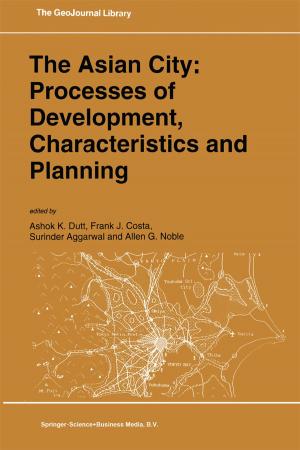International Perspectives on Competence in the Workplace
Implications for Research, Policy and Practice
Nonfiction, Reference & Language, Education & Teaching, Counseling & Guidance, Business & Finance, Human Resources & Personnel Management| Author: | ISBN: | 9781402087547 | |
| Publisher: | Springer Netherlands | Publication: | October 8, 2009 |
| Imprint: | Springer | Language: | English |
| Author: | |
| ISBN: | 9781402087547 |
| Publisher: | Springer Netherlands |
| Publication: | October 8, 2009 |
| Imprint: | Springer |
| Language: | English |
As the world’s economy develops into a more dynamic, fast-moving, and unpredictable entity, it is crucial that the workers who create wealth have the ability to assess and respond to new and unforeseen challenges. In other words, the future will require a more competent workforce. What, though, does this mean in practice? In this, the fully revised second edition of Christine Velde’s book, a variety of researchers from around the world provide a truly international perspective on the issue. They help to redefine the term competence. Rather than responding to challenges using a pre-existing set of skills, they see competence as having the ability to assess new situations, and then adapt one’s response accordingly, particularly in collaboration with others.
Providing the reader with insightful perspectives about competence in different situations and contexts, the book’s sections explore the concept of competence in industry and vocational education, in schools and colleges, in small businesses and companies, and in universities. The interpretation, experience and teaching of competence in the workplace is boiled down to five essential components that in themselves represent an argument for a more holistic conception of competence. Velde herself concludes the book by synthesizing and reflecting on the contents.
This book provides the reader with insightful perspectives on competence, and the characteristics of learning environments in different workplace contexts. Drawing on phenomenographic insights allows it to present a more enlightened view of competence, at the same time as opening up an international dialogue about the meaning and interpretation of competence in the workplace. Useful not only to educators and researchers, this volume will also assist leaders and managers in a variety of contexts to develop more meaningful workplaces.
As the world’s economy develops into a more dynamic, fast-moving, and unpredictable entity, it is crucial that the workers who create wealth have the ability to assess and respond to new and unforeseen challenges. In other words, the future will require a more competent workforce. What, though, does this mean in practice? In this, the fully revised second edition of Christine Velde’s book, a variety of researchers from around the world provide a truly international perspective on the issue. They help to redefine the term competence. Rather than responding to challenges using a pre-existing set of skills, they see competence as having the ability to assess new situations, and then adapt one’s response accordingly, particularly in collaboration with others.
Providing the reader with insightful perspectives about competence in different situations and contexts, the book’s sections explore the concept of competence in industry and vocational education, in schools and colleges, in small businesses and companies, and in universities. The interpretation, experience and teaching of competence in the workplace is boiled down to five essential components that in themselves represent an argument for a more holistic conception of competence. Velde herself concludes the book by synthesizing and reflecting on the contents.
This book provides the reader with insightful perspectives on competence, and the characteristics of learning environments in different workplace contexts. Drawing on phenomenographic insights allows it to present a more enlightened view of competence, at the same time as opening up an international dialogue about the meaning and interpretation of competence in the workplace. Useful not only to educators and researchers, this volume will also assist leaders and managers in a variety of contexts to develop more meaningful workplaces.















